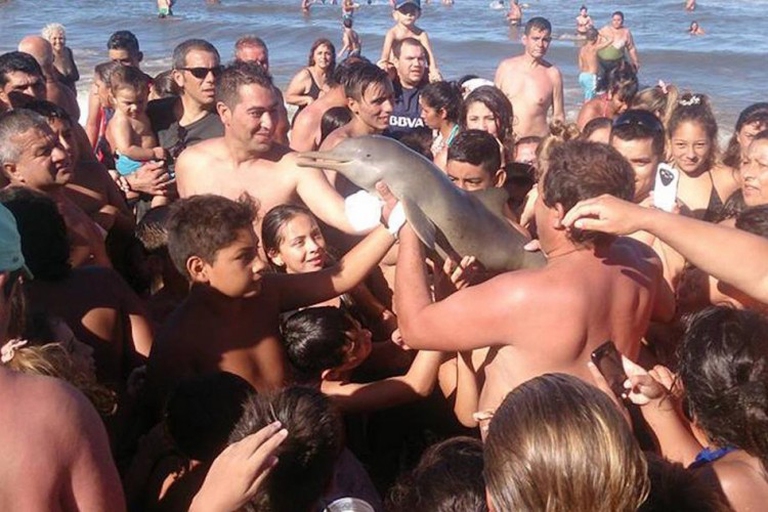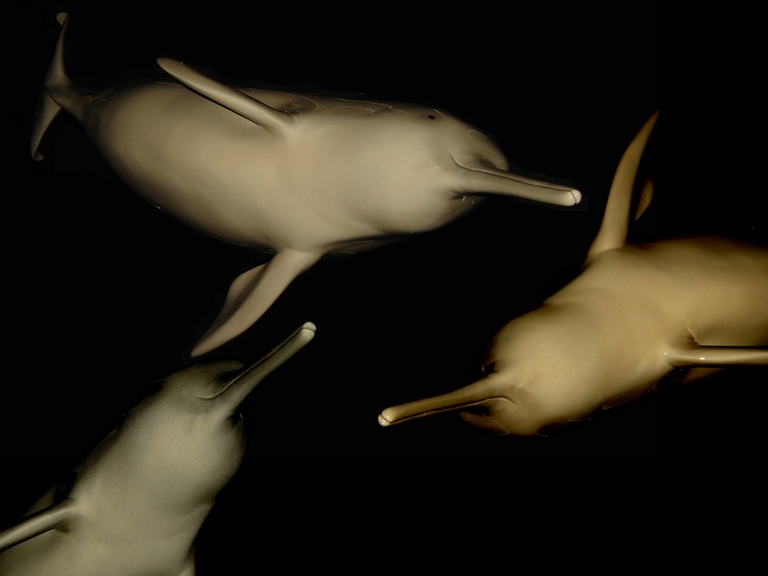
Our species took its first steps in a world covered in trees. Today, forests offer us sustenance, shelter, and clean the air that we breathe.
In Argentina un piccolo delfino è stato tirato fuori dall’acqua da un gruppo di turisti desideroso di scattarsi una foto con l’animale. Il cetaceo è poi morto per disidratazione.
The incident is disquieting and triggers a series of sad considerations on the irreversible moral decline of the civilization created by the Homo Sapiens. Empathy, respect and love, elements that should be the founding feelings of our species, have disappeared under the warmth of the Argentinian sun, along with the last instants of a baby dolphin’s life, sacrificed on the altar of vanity and exhibitionism.
The incident took place in Argentina, on Santa Teresita beach, north-west of the province of Buenos Aires. The cetacean, a specimen of Franciscana dolphin (Pontoporia blainvillei), species listed as Vulnerable by the IUCN, has been scooped out of the water and brought to the beach by tourists and beachgoers for petting and photos.
The animal has been thus passed around, from hand to hand, from selfie to selfie, while probably launching a silent plea: “take me back to the water. That is my place”. However, people – whose compassion was crippled by smartphones – did not realise what was going on and the dolphin died of dehydration.
Paul Watson, founder and president of Sea Shepherd, association fighting to protect the world’s marine wildlife, also commented the said facts.
A Curse on These Beach Bum Baby Killers.Commentary by Captain Paul WatsonMost of the time I try very hard to control…
Posted by Captain Paul Watson on Jueves, 18 de febrero de 2016
Photographer Hernan Coria, author of the photos, claimed that the animal was already dead when beachgoers took it out of the water to take pictures. He also said that other dolphins were found washed up dead over the past few days. This version could exculpate involved people, but numerous witnesses said that the baby dolphin was still alive.
Siamo anche su WhatsApp. Segui il canale ufficiale LifeGate per restare aggiornata, aggiornato sulle ultime notizie e sulle nostre attività.
![]()
Quest'opera è distribuita con Licenza Creative Commons Attribuzione - Non commerciale - Non opere derivate 4.0 Internazionale.
Our species took its first steps in a world covered in trees. Today, forests offer us sustenance, shelter, and clean the air that we breathe.
Poachers in Africa are encroaching on wildlife land and killing rhinos in travel hot spots now devoid of visitors due to the coronavirus pandemic.
Actor and environmental activist Leonardo DiCaprio has contributed two million dollars to a fund to protect Virunga National Park in Congo from threats such as terrorism, the coronavirus and poaching.
For the first time in seventeen years, Iceland’s two main whaling companies won’t resume whale hunting. The announcement concerns this year’s season but could carry into the future.
The relationship between the coronavirus and wildlife is complex: while the pandemic may lead to a reduction in the illegal trade in wild animals, it may also encourage it in other respects.
The largest coral reef in the world is severely threatened by climate change, but researchers are developing strategies that could contribute to saving the Great Barrier Reef.
NGO Free the Bears has opened a mountain sanctuary for moon bears in Laos. With the government’s help, it aims to close all bile farms by 2022.
Seychelles have extended its marine protected area, which now covers over 400,000 square kilometres, an area larger than Germany.
The tapir was reintroduced into Brazil’s Atlantic Forest, the country’s most at-risk ecosystem. The species can play a key role in the forest’s recovery.









